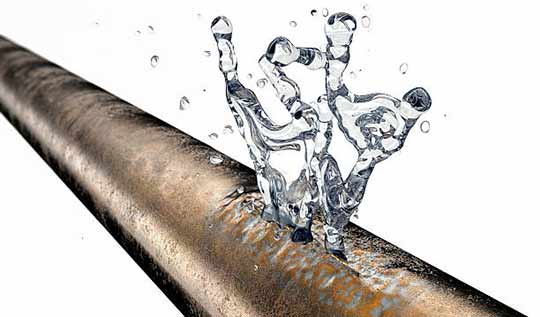As a tenant, it is important to be prepared for emergencies that may arise in your rental property. One such emergency is burst pipes. When a pipe in your rental property bursts, it can cause significant damage to the property and your personal belongings. In this article, we will discuss what you should do if this emergency occurs in your rental property.
1. Assess the Situation
When you discover a burst pipe in your rental property, the first step is to assess the situation. Determine the extent of the damage and identify the location of the burst pipe. This will help you communicate effectively with your landlord or property manager.
2. Shut Off the Water
Once you have assessed the situation, it is important to shut off the water supply to prevent further damage. Locate the main water shut-off valve in your rental property and turn it off. If you are unsure of the location, consult your landlord or property manager for guidance.
3. Notify Your Landlord or Property Manager
After shutting off the water, you should immediately notify your landlord or property manager about the burst pipe. Provide them with clear and concise information about the situation and any relevant details such as the location of the burst pipe.
4. Take Steps to Minimize Damage
While waiting for your landlord or property manager to address the issue, there are a few steps you can take to minimize further damage:
- Remove any furniture or belongings from the affected area to a dry location.
- Place buckets or towels under the leak to collect water and prevent it from spreading.
- Use a mop or wet vacuum to remove excess water.
- Open windows or use fans to promote ventilation and help dry the area.
5. Document the Damage
It is important to document the damage caused by the burst pipe for insurance purposes and to ensure that you are not held responsible for any repairs or replacement costs. Take photographs or videos of the affected areas and any damaged belongings. Keep copies of any correspondence with your landlord or property manager regarding the incident.
6. Communicate with Your Insurance Company
If you have renters insurance, contact your insurance company as soon as possible to report the burst pipe and the resulting damage. They will guide you through the claims process and provide assistance in assessing the extent of the damage.
7. Cooperate with Repairs and Restoration
Once your landlord or property manager has been informed about the burst pipe, they will take steps to repair the pipe and restore the property. Cooperate with their efforts and follow any instructions or guidelines they provide. This will help expedite the repair process and minimize the impact on your living situation.
8. Communicate Any Concerns
If you have any concerns or questions regarding the burst pipe incident or the repair process, do not hesitate to communicate them to your landlord or property manager. They are responsible for ensuring that the property is habitable and addressing any issues that may arise.
9. Learn from the Experience
A burst pipe can be a stressful and inconvenient experience, but it also provides an opportunity to learn and prevent future emergencies. Reflect on the incident and identify any actions or precautions you can take to minimize the risk of a burst pipe in the future. This may include keeping the property adequately heated during cold weather, monitoring water pressure, or promptly reporting any signs of leaks or plumbing issues to your landlord or property manager.
Conclusion
Knowing what to do in the event of a burst pipe in your rental property can help you mitigate damage and protect your personal belongings. By assessing the situation, shutting off the water, notifying your landlord, and taking steps to minimize damage, you can ensure a prompt response to the emergency. Cooperating with repairs and communicating any concerns will help expedite the restoration process. Remember to document the damage and contact your insurance company if you have renters insurance. Lastly, learn from the experience to prevent future emergencies. Stay prepared and proactive to ensure a safe and comfortable living environment in your rental property.
